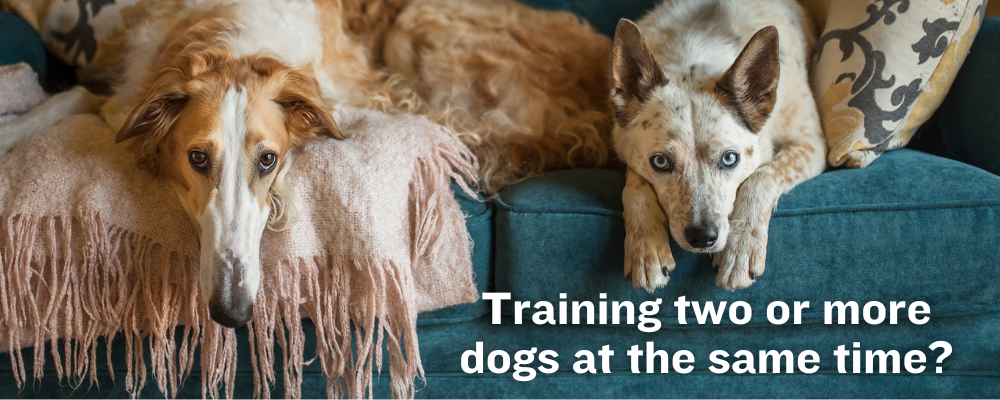Stubbornness can be a major issue for many dog owners. Stubborn dogs will not listen to their owners and it can sometimes be frustrating. They may keep jumping on people, chewing up things, going potty inside the house, or barking excessively.
Some dog breeds, like German Shepherd Dogs, are more stubborn than others so it’s important to understand what you’re dealing with before committing to any training methods. Here, are some ways to help your dog become less stubborn.
You may also like:
Why Do German Shepherds Growl? And What Should I Do About It?
7 Things You Didn’t Know Your Dog Can Sense
How to Tell if Your German Shepherd Loves You?
What Is Stubbornness?
Stubbornness in dogs is a personality trait that is characterized by an unwillingness to change their minds, even after being shown evidence that their initial judgment might be incorrect.
Simply put, it refers to the fact that a dog continues to act as they wish and will never listen regardless of punishment or reward. However, many dogs don’t always know what they are doing wrong or what’s the best way to respond to situations and therefore feel the need to act out to teach us.
Identify Stubborn Behavior
One way to identify stubborn behavior is to figure out the root cause.
So, if your dog has jumped up on you a lot lately, have you given him too much food? Did you find a new snack and he thinks he should get it all the time?
If he chews up your slippers or, more frequently, your shoes, perhaps he feels neglected.
If he pees inside the house, it’s possible that he thinks he can leave his mark everywhere he goes.
If he keeps running up to people or other dogs and barking, perhaps he thinks he is taking control.
If he keeps digging in your backyard, perhaps he is looking for a job to do for channeling that excessive energy.
If he wakes up at night and barks, perhaps he thinks he’s being ignored.
Why Are German Shepherds Stubborn?
There are a variety of possible causes of stubbornness in dogs.
We will first list out some of the most common reasons when it comes to German Shepherds. Then we will provide suggestions to tackle their stubbornness later in this article.
#1 German Shepherds think they are intelligent enough to judge
German Shepherds are intelligent, active, and strong dogs that were originally bred to be working dogs. They’re still used for herding sheep in some countries today.
German Shepherds can be stubborn at times because they have high levels of intelligence. They may also become disobedient if they feel like you don’t train them properly.
#2 German Shepherds have an independent character in their trait
They have a strong sense of independence, which means they need to know that they are in charge.
They do not want to be told what to do by their human companions.
If you have a German Shepherd, then you know all about the headstrong personality traits that these dogs possess.
#3 German Shepherds are protective by instinct
German Shepherds are protective of their owners by nature, and they are even known to put their lives in danger to save others.
However, without proper training or socialization, GSDs can become too aggressive and dangerous. He might be considered intimidating with the barking and lunging when approached by strangers.
This behavior of your dog will persist if left unchecked.
#4 German Shepherds need clear rules and boundaries
German Shepherds are working dogs, which means they need clear rules and boundaries. Without them, they will become destructive or difficult to handle. German Shepherds need to know what their role in the family is.
They also need to be shown that the rules you set are consistent because that way they’ll understand which behaviors are acceptable and which ones won’t be tolerated.
Therefore, it is important to teach your German Shepherd the right way to become a good canine citizen right from the beginning.
#5 Your German Shepherd may have been mistreated
Fearful dogs who are reluctant to explore or experience anything new are often very stubborn.
Your German Shepherd, if adopted, may have been bullied by other animals, or had previous negative experiences with people or other animals. They are less likely to follow your command before trusting you.
#6 Your German Shepherd lack confidence
Lack of confidence may also be an underlying factor in some cases, which may stem from two extremes – being overprotected or discouraged verbally or by punishment.
An overprotected dog would basically be unwilling to explore anything new, be it a new trick or a new treat. After all, he is smart enough to know it’s ok and her owner will still love her regardless.
Similar to a fearful dog, a discouraged dog may be reluctant to try anything new for fear that he may be punished. After all, positive encouragement like praises and hugging can go a long way.
#7 Your German Shepherds do not have a strong bond with you
If you happen to have more than one German Shepherd. And they (e.g. siblings) have been raised together ever since. Chance are they have their bond with each other are much better than with you as the owner.
This is also known as Sibling Syndrome. When two puppies are placed together, they learn to rely on each other. One of the puppies always becomes shy, increasingly withdrawn and introverted. And he may never reach his or her full potential.
On the other hand, the “bold” puppy turns out to be quite nervous and uncertain when separated.
These puppies often fail to bond to their human family as strongly as they otherwise would. When they start to mature, they may begin fighting with one another, often quite severely.
What to do if my German Shepherd is Stubborn?
Stubbornness can also present itself as an inflexible attitude when it comes to training. For example, a dog who refuses to learn new commands and shuts down himself.
The good news is, there is more than one way to make your dog less stubborn. Here are a few tips:
Start training early
If you want your dog to become more obedient and less stubborn, it’s important to train them early and often. German Shepherds are known to be one of the most intelligent breeds out there, and they are known for being very trainable.
The more time you spend training them, the more motivated they’ll be to learn. As a puppy, your dog will learn that certain behaviors yield positive results, which will help to keep them in check.
You can start training your dog with basic commands like SIT or DOWN when he’s still a puppy and he’s still new to your house. Most breeders recommend teaching dogs a variety of commands as early as eight weeks old.
This will prevent your dog from becoming too stubborn to learn.

Give clear commands
Next, you need to be firm with what you want your dog to do. Most puppies will try to please their owners. But, this will not be the case for everyone.
If a dog is allowed to get away with certain things, then he will eventually begin to think that the way they are treating you is acceptable. To avoid this, it is imperative that you be very clear with them.
Try to use positive commands and tell them firmly what you want them to do or eat, without making it sound like an order. For instance, instead of saying things like “No don’t pee on the carpet.”, say “Do your business outside!”.
Let them understand what it is you are asking them to do without being harsh. When they have done something you asked, praise them with a happy voice and even a big hug, and let them know they have done a good job.
Provide lots of positive encouragement
Positive reinforcement is the key to helping your dog become less stubborn.
If you can reward your dog for following your commands, they’ll be more likely to obey and do what you want them to do. This means that you will always create a situation where the dog will naturally seek to do what you want.
It helps to reward them for good behavior, giving them immediate feedback about what they did right and what they did wrong.
To further motivate your pup, you may also like to have different kinds of treats in one training session. This will keep your puppy looking for more.
Three Types Of Rewards
Voice: A happy, lively, and motivating praise is one of the best and easy positive reinforcements you can give your dog.
Treats: It works especially well with food-motivated puppies who are always hungry.
Playing and Petting: If your dog is not food-motivated, you can reward her with a toy and petting as alternatives. It can be a tennis ball or a frisbee. Or you can just give her a warm pet after praising her, which is something almost all dogs are fond of.

Every dog takes their reward differently, you may need to try them out to see which one works best for your pup. Sometimes a dog may need a combination of one or two.
Exercise your dog regularly
Many dogs are also stubborn when it comes to training because they don’t enjoy it or think it’s boring. Not only does this prevent them from getting exercise, but it can also lead to boredom and behavioral issues.
That’s why it’s crucial to get your dog outside and exercise regularly. For reference, an adult German Shepherd should have at least 1 hour of exercise per day.
Be Patient With Your Dog
Be patient with your German Shepherd if he may not be obeying you every single time.
This is important because he needs time to learn how to behave like a good dog. And most people thought a pup would understand every single word they said right off the bat. Well, this may not be the case.
And the fact is, you will need to develop a good bond with your dog first – by spending quality time playing with him, walking with him, staying with him, and caring for him.
As long as you keep an open mind about your dog’s personality, you’ll be able to work with him and get him to take your command as time goes.
Give Them Work
Your German Shepherd might be hard-headed because they don’t feel like they’re being treated fairly. He might feel like they’re in the right place and just need a job or two to do during the day.
After all, GSDs are bred to be working dogs, and they are best known for their herding, guarding, scenting, and retrieving abilities. And you are probably wondering, “what kind of jobs can I assign my GSD to do?”
In fact, some of the most excellent jobs your dog could do are household chores. They might not seem to be a big help for your routine, but it could certainly let your GSD thrive!
Here are a few jobs in the house that you can let your GSD do for you.
Tidying up their toys
If you love to spoil your beloved pet pal, he always has toys around the house. And chances are, these toys will sometimes be scattered around the floor.
You can make it their job by asking them to retrieve all their toys and drop them in a designated bin.
Getting stuff
All dogs use all their senses to track down items and even people. Teaching the “find” or “go get” cue will be your first step.
Once your dog understands the basis of the game, you can teach him to find and fetch all kinds of objects.
For example, you can teach him to bring you your shoes before a walk or carry over his own leash.
Keeping track of family members
Herding is a great job for working breed dogs like the GSD. But sometimes it can be hard to do without a flock of sheep or other livestock.
Why not embrace your dog’s natural instinct and teach him how to do it in the household as well? If you have a whole pack of pets, teach your herding dog how to gather the other dogs, and even the cat, around the kitchen for dinner.
Be careful using this trick with children, but you can potentially employ your dog to help keep the entire family where you want them.
Carting helper
Working breeds like Huskies, Mastiffs, and Bernese Mountain Dogs have been trained in carting for a long list of jobs. For this job, you’ll need a cart with a harness.
Once they’re harnessed to the cart, they’re all business and will take their jobs seriously.
Starting from your yard, you can give your dog the job of helping in a garden or with yard clean-up.
You can even lead him around with no real purpose—he won’t care, he’ll still think he’s doing an important job.
Carrying your grocery
Wouldn’t it be nice if you had someone to follow you around and carry your stuff? Your dog is the perfect candidate.
The simple task of carrying something can be immensely satisfying to a work-driven dog. As long as it’s not too heavy, carrying stuff is a safe job for all dog breeds.
You can train your pooch to carry in the grocery bags from the car or help you carry items upstairs when you’re cleaning.
When you go hiking or on a walk, strap a backpack onto your dog and let him carry his own water and treats.
Not only will it give him a job to do, it’ll also help tire him out.
Final Thoughts
Stubbornness can become a huge problem, especially with dogs like German Shepherds. That is why it is so important to understand the reasons why German Shepherds have stubborn personalities.
If you have a stubborn dog that is giving you a hard time, and you have tried our suggestions above and it still doesn’t work, consider investing in obedience classes and a good trainer to help you and your dog figure out how to get along better.



